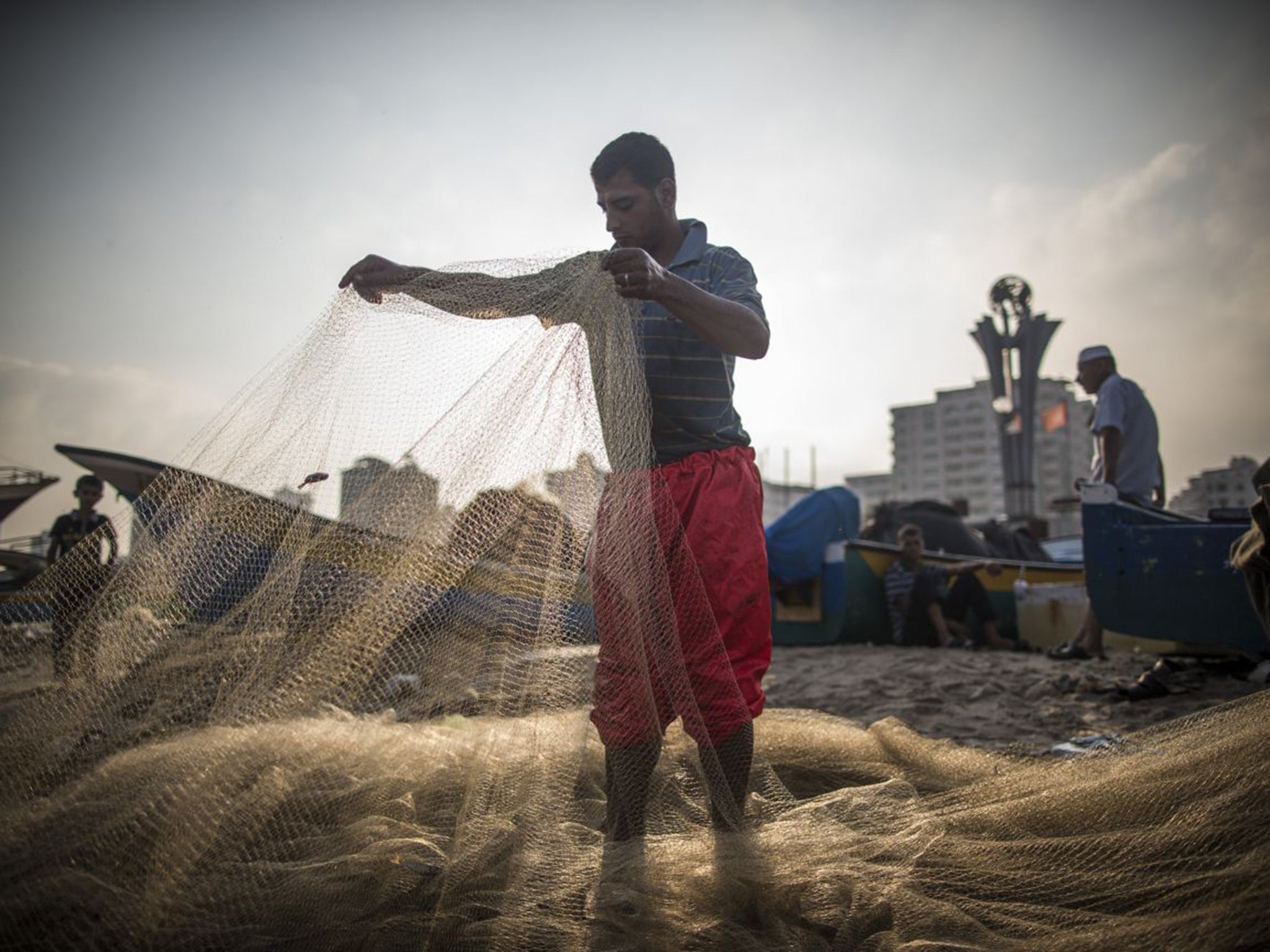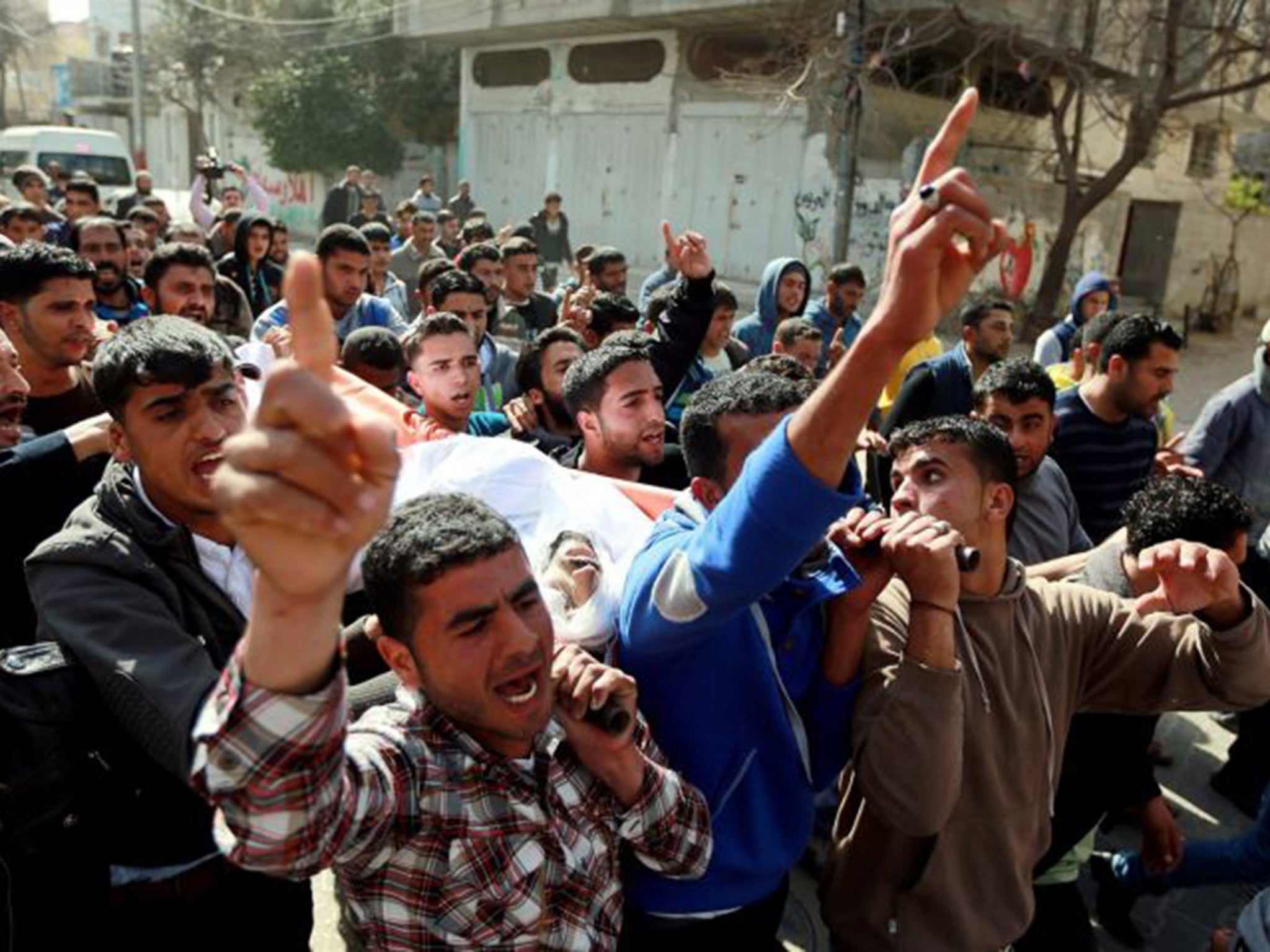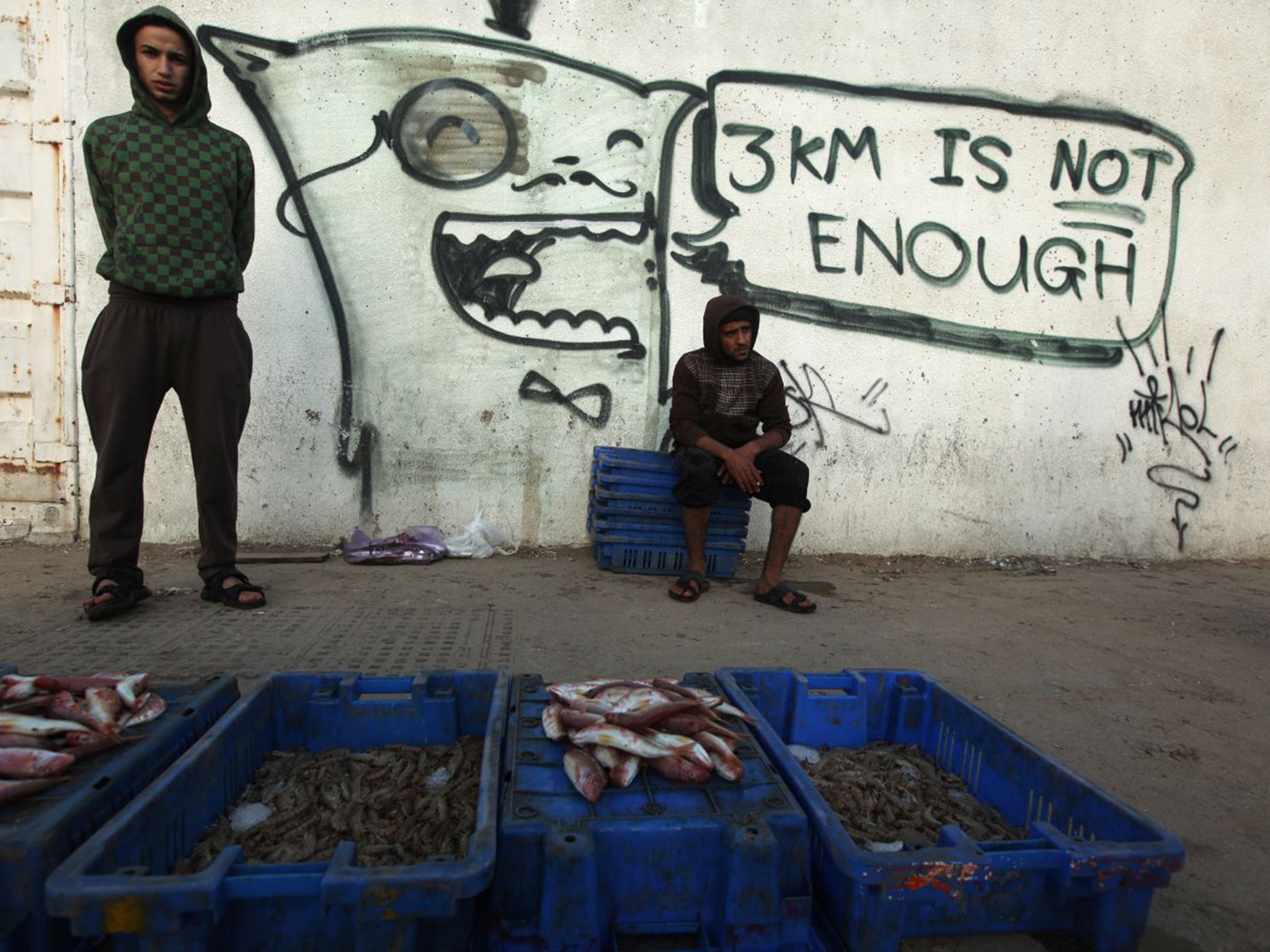The Gaza fisherman who built his own reef - and was shot dead there by an Israeli gunboat
Palestinians say increasing restrictions on the water they use have led to economic collapse – and deadly assaults

Your support helps us to tell the story
From reproductive rights to climate change to Big Tech, The Independent is on the ground when the story is developing. Whether it's investigating the financials of Elon Musk's pro-Trump PAC or producing our latest documentary, 'The A Word', which shines a light on the American women fighting for reproductive rights, we know how important it is to parse out the facts from the messaging.
At such a critical moment in US history, we need reporters on the ground. Your donation allows us to keep sending journalists to speak to both sides of the story.
The Independent is trusted by Americans across the entire political spectrum. And unlike many other quality news outlets, we choose not to lock Americans out of our reporting and analysis with paywalls. We believe quality journalism should be available to everyone, paid for by those who can afford it.
Your support makes all the difference.The underwater rock formations provide the best fishing grounds off Gaza, but they are just beyond the limit set by the Israelis for local boats. Tawfiq Abu Riyala dreamt up an ingenious plan to solve this problem; but it may have ended up costing him his life.
The 32-year-old fisherman had built up his own artificial rock with planks of wood, tyres, and bits of metal, seemingly well within the area in which he and his colleagues are allowed to operate. It was while he was adding to this pile that an Israeli gunboat opened fire, wounding him fatally.
Tawfiq and four other fishermen were in two boats that he owned. Both vessels were seized: two of the men were injured; two others arrested. “I told him not to go that day, because the Israelis were doing a lot of shooting; but those boats had cost him $50,000 [£34,000] and he had to earn money to pay back the loan he had taken for them,” said his brother Mohammed, 29.
“It may be that the Israelis saw something metallic in his hands and that’s what led to them firing. But he has been building that thing for more than 18 months. They have seen him doing it. So, why shoot this time? And what about all the other shootings?”

There were reportedly three other attacks in the previous eight days before Tawfiq’s death. Three men suffered minor wounds and four were arrested. According to Palestinian human rights organisations, Israeli forces have detained 49 fishermen, injured 17 and confiscated 12 boats since the ceasefire agreement in Cairo which ended last summer’s conflict.
Israel insists that the strict rules are necessary to prevent Hamas smuggling in weapons from the sea. In Tawfiq’s case, the military said its forces tracked a number of vessels which had “deviated from the designated fishing zone”, ordered them to stop, and opened fire at their engine when they failed to do so.
The Palestinians say that it is systematic harassment, a weapon of economic warfare.
The fishing industry was once a great money-earner for the territory. The 1994 Oslo peace accord gave Gaza’s 4,000 fishing families a 20- nautical-mile fishing zone. Ten years later they were still landing 3,000 tons of fish, enough for domestic need and export as well.
In 2006, Hamas took control of Gaza and attacks on Israel began to rise: a blockade followed in retaliation. Israel unilaterally restricted fishing to six nautical miles, cutting off 60 per cent of the area where most of the sardines, mackerel, tuna and bream can be found. Since then the limit has at times been reduced by Israel to three nautical miles in response to rocket attacks.
Adding to the desperate situation, Gaza’s sewage system, battered by three wars in eight years, is close to collapse, spewing 90 million litres of raw or only partly treated waste into the sea every day. Some work has now begun on this, but it has been slow due to the lack of adequate supply of cleansing agents.
The fish catch has dropped 50 per cent in volume in the past decade. The fishermen, who used to make so much money that they were known as “Gaza oilmen”, are now among the poorest in the community, with 95 per cent of households needing food handouts. “We used to spend the money so it helped the traders here. We used to buy gold for our women,” recalled Mohammed al-Hissi, the head of the fishermen’s syndicate in Gaza City.
“Those were good days. Relations were good with the Israeli fishermen we used to meet; we would help each other out. But things changed. We had to sell off our gold a long time ago. Many have had to sell their houses and cars – if they had them.”
Tawfiq’s cousin, Mofleh Abu Riyala, a fisherman for 12 years, also recalled the good days. “We don’t know whether those times would come back,” he said. “Our families have been fishing for hundreds of years; we do not want to see this tradition die off in Gaza.”

Saied, Tawfiq’s six-year-old son, however, is not going to follow in his father’s footsteps. “It is too dangerous, look what they did to my dad. I want to be a teacher,” he said.
Tawfiq’s widow, 29-year-old Fadwa Abu Safia, said she had asked Tawfiq whether it was really necessary for him to go out that day. He had not seen much of Saied and his two-year-old daughter Shams recently. “But he said he had to go out because of the children, to get the money to look after them,” she recalled.
“I got a phone call saying that he had been shot, but they said he was only injured and they were going to take him to al-Shifa Hospital [in Gaza City].
“I was not even with him when he died. I keep on thinking if only he had received treatment abroad it would have been all right.
“I wish the Israelis had arrested him after shooting him – they have much better medical facilities. My husband may have ended up in prison, but he would still be alive. It’s very hard to think you’ll never see someone you love again.”
Subscribe to Independent Premium to bookmark this article
Want to bookmark your favourite articles and stories to read or reference later? Start your Independent Premium subscription today.
Join our commenting forum
Join thought-provoking conversations, follow other Independent readers and see their replies
Comments